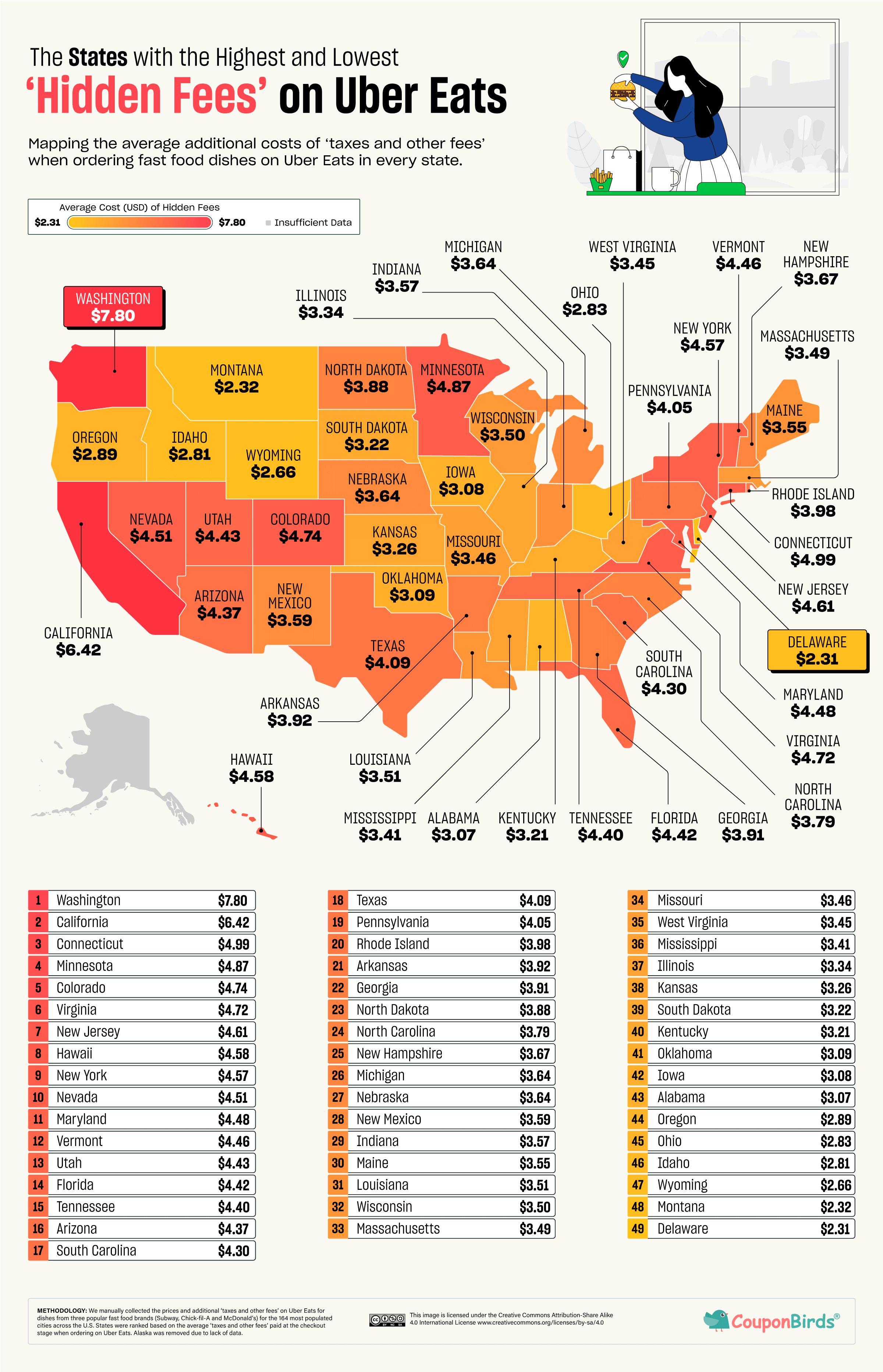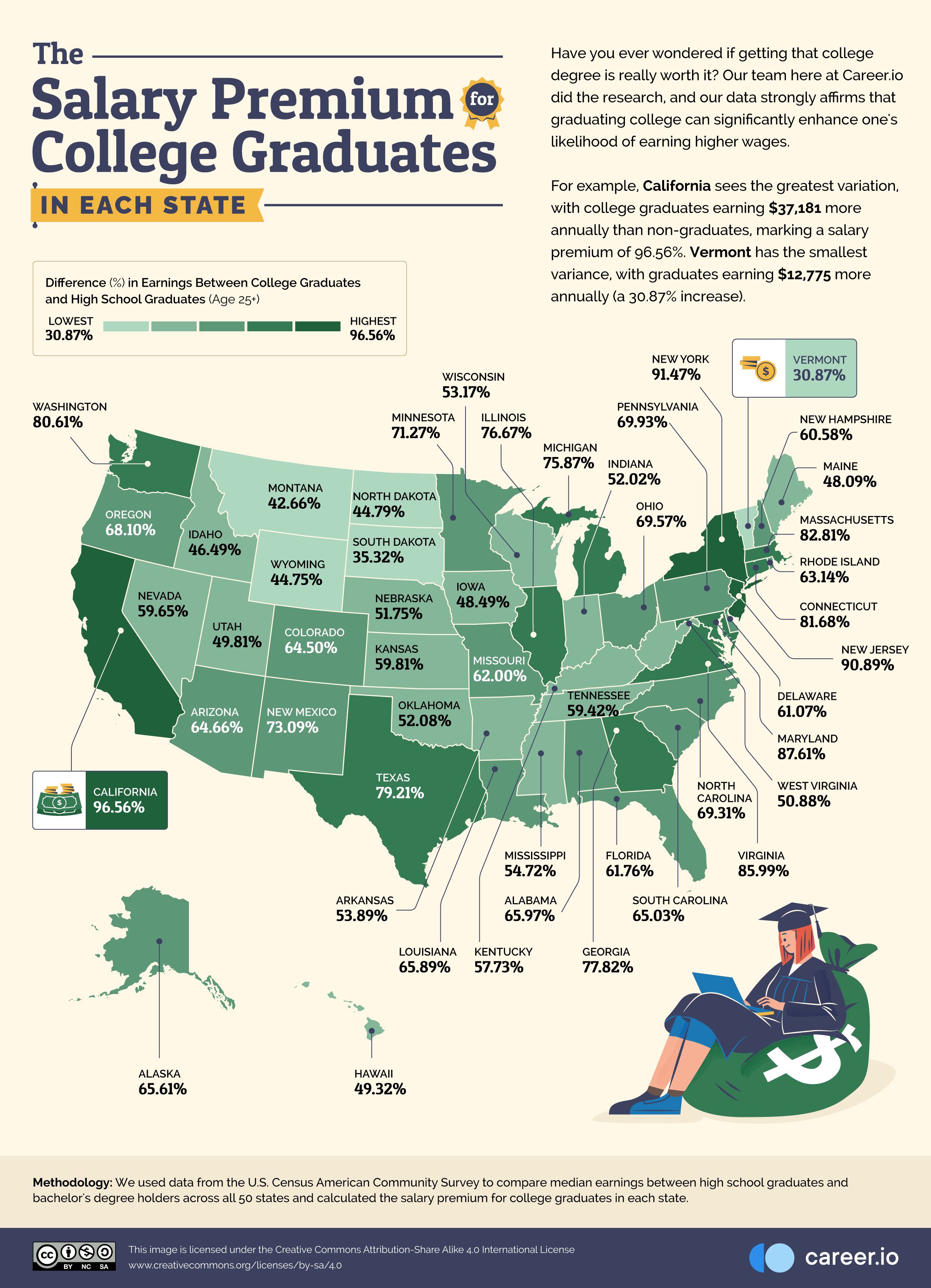The Evolution of Tech Startups Across America: A State-by-State Analysis
The United States tech landscape has transformed dramatically over the past six years. While Silicon Valley remains the heart of innovation, a fascinating shift is happening across the American map as new tech hubs emerge and thrive in unexpected places.
The Early Landscape: 2018
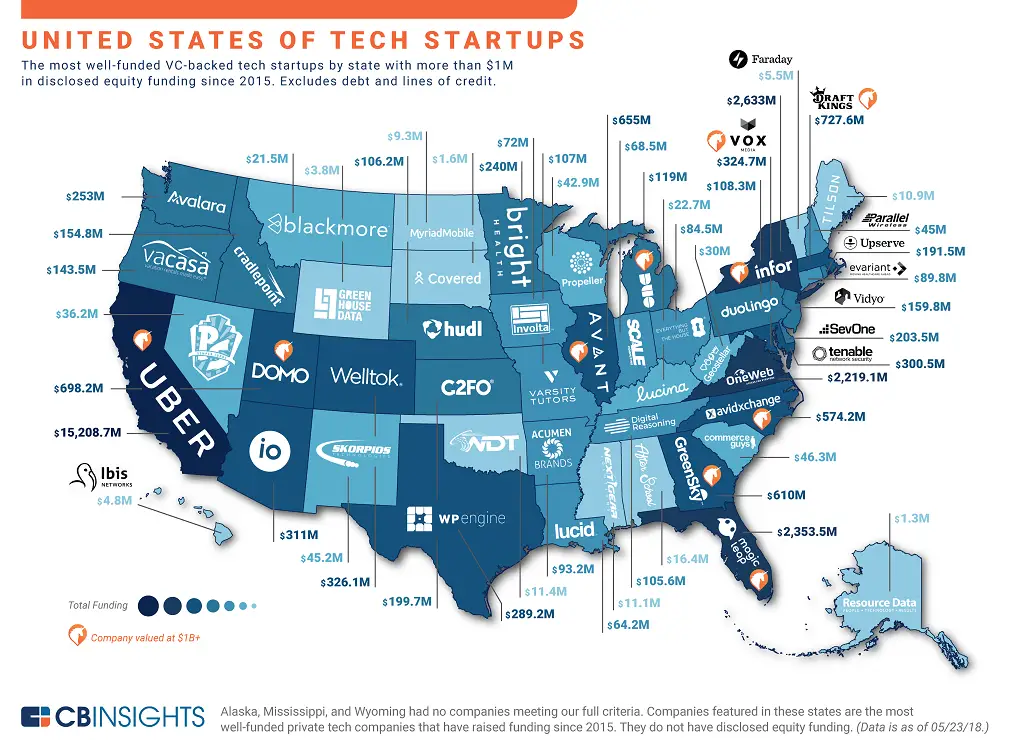
In 2018, CB Insights’ analysis revealed intriguing patterns across the map of the United States. While California predictably led with Uber’s $15.2 billion in funding, other regions showed surprising strength:
- Florida’s Magic Leap secured $2.3 billion
- Virginia’s OneWeb raised $2.2 billion
- Massachusetts’ DraftKings attracted $728 billion
Even smaller states made their mark – CB Insights found that 47 states had startups with at least $1 million in funding, suggesting a broader distribution of tech innovation than many expected.
The Shifting Landscape: 2021 and Beyond
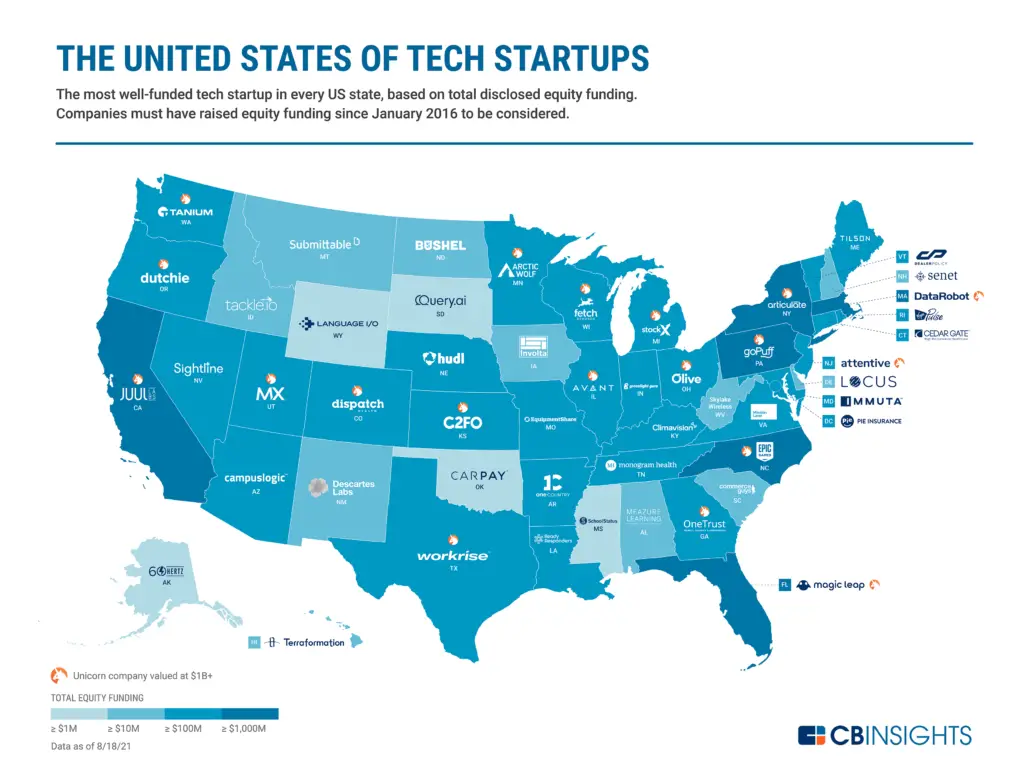
By 2021, the landscape had evolved significantly. CB Insights’ updated analysis showed several notable changes:
- North Carolina’s Epic Games emerged as a major player with $4.4 billion in funding
- Pennsylvania’s goPuff rose to prominence with $3.4 billion
- Georgia’s OneTrust secured $930 million, establishing Atlanta as a privacy tech hub
Tech Talent and Education: Driving the Next Wave
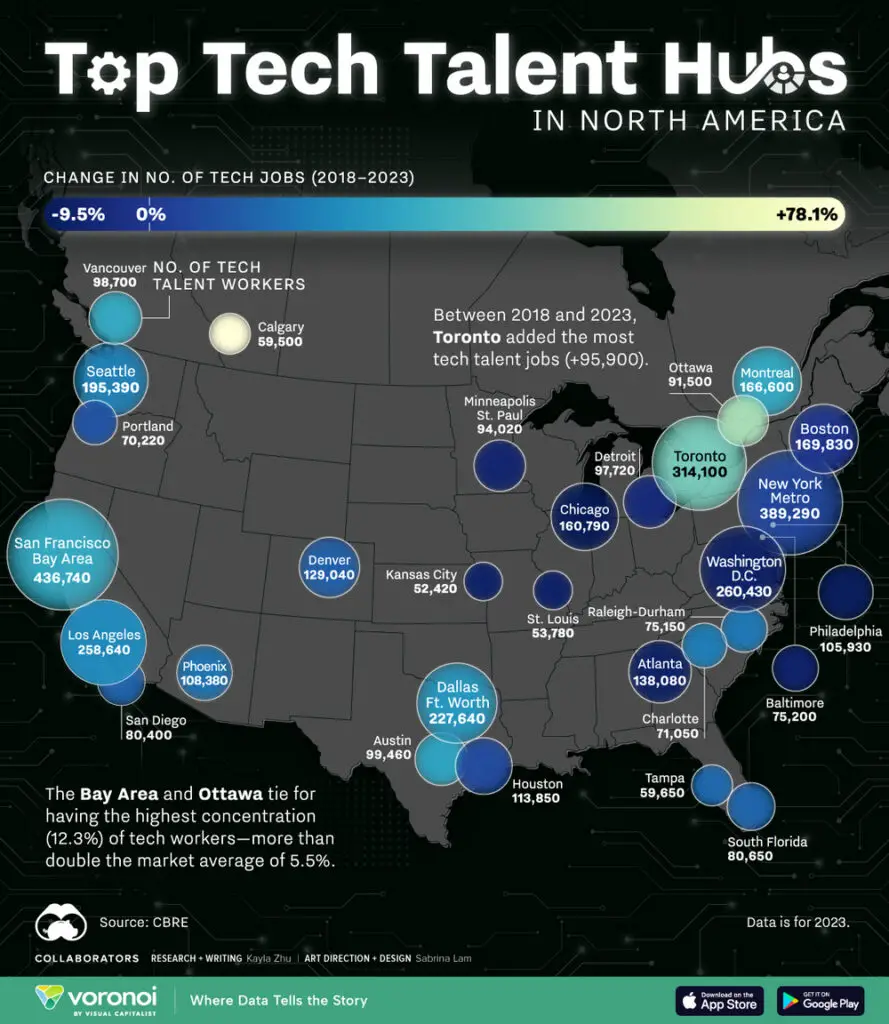
The most recent data, visualized by Visual Capitalist using CBRE’s 2024 Tech Talent Report, reveals how talent and educational institutions are reshaping the map of innovation across the United States. Traditional tech hubs maintain significant populations of tech workers:
- San Francisco Bay Area: 436,740 tech workers
- New York Metro Area: 389,290 professionals
- Dallas-Fort Worth: 227,640 tech workers
However, the most compelling stories come from regions where universities and tech talent are creating new innovation ecosystems. According to the Brookings Institution, several areas stand out:
- The North Carolina Research Triangle (Raleigh-Durham-Chapel Hill) leverages three major universities, helping attract Epic Games and other tech giants. The region saw a 17.9% increase in tech talent between 2018-2023.
- Austin combines the University of Texas’s talent pipeline with a business-friendly environment. This partnership helped the region attract $5.4 billion in venture funding in 2023, according to Pitchbook data.
- Boston’s concentration of universities powers its biotech and AI sectors, maintaining steady growth even during market fluctuations.
Remote Work Reshapes the Map
McKinsey’s “The Future of Work in America” report shows how remote work has accelerated the growth of tech hubs in new locations across the United States. These emerging centers offer unique advantages:
- Lower operating costs for both startups and established companies
- Strong public-private partnerships
- Supportive state policies for innovation
- Higher quality of life at lower costs
The Wall Street Journal reports that this shift has particularly benefited several regions:
- Salt Lake City: 12.9% increase in tech talent while maintaining lower living costs than coastal hubs
- Tampa: 14.9% growth, attracting remote workers with its climate and tax advantages
- Phoenix: 17.2% more tech workers, benefiting from California tech company expansions
Looking Ahead
The tech startup map of the United States continues to evolve in fascinating ways. Morgan Stanley’s “The Future of Tech Cities” report predicts that by 2025, we’ll see at least five new major tech hubs emerge, particularly in the Southeast and Mountain regions.
Each region is developing its own specialties – cybersecurity in Atlanta, gaming in Raleigh-Durham, biotech in Boston. This specialization, combined with the flexibility of remote work and strong educational foundations, suggests a future where innovation isn’t concentrated in a few coastal cities but distributed across a network of specialized hubs throughout the United States.


